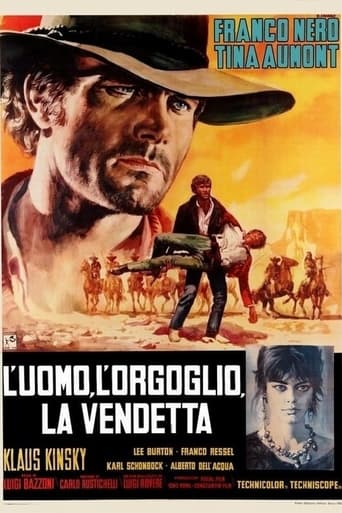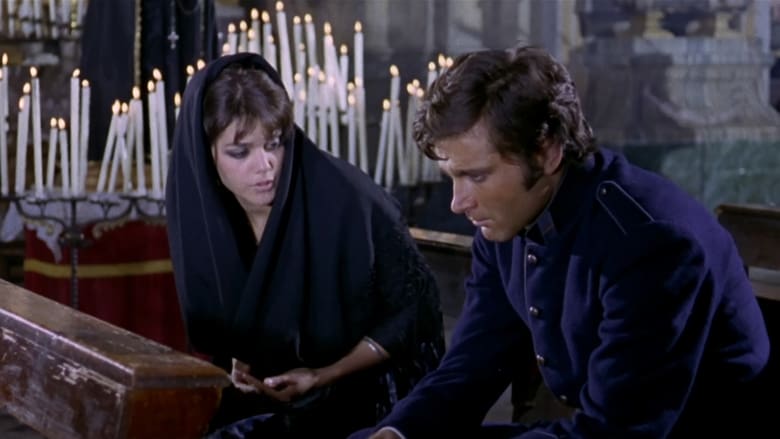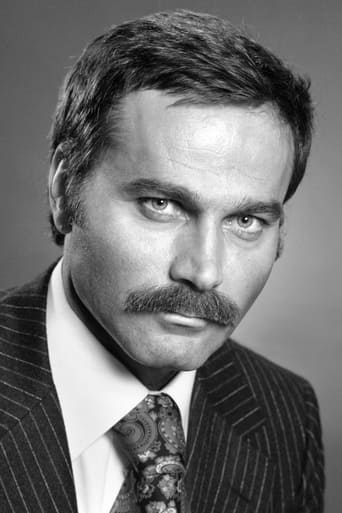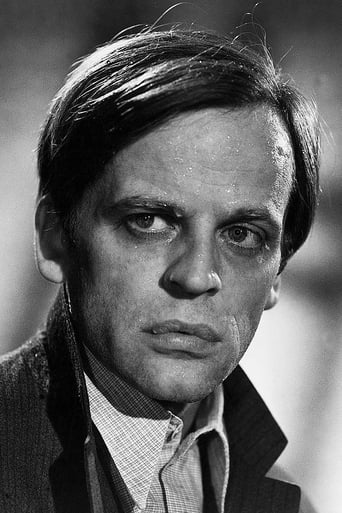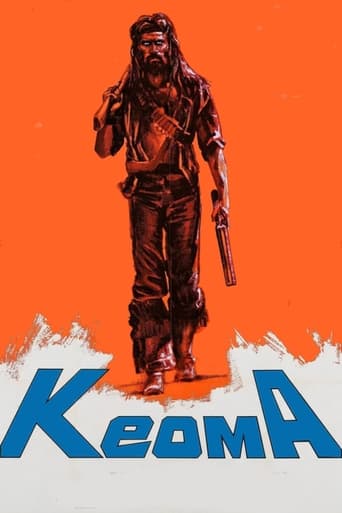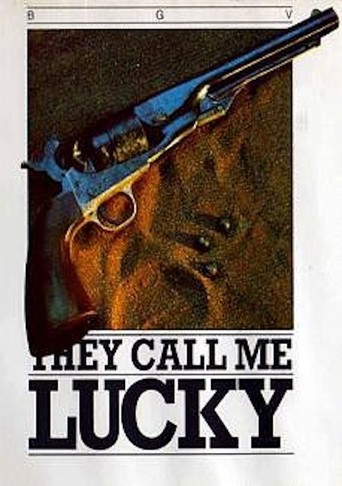Man, Pride and Vengeance (1967)
A Spanish army officer, Don Jose, stationed in Seville, meets and begins a relationship with a mysterious gypsy, Carmen. After he discovers she has cheated on him with his Lieutenant, he kills the officer and flees the city with Carmen. He recovers from his wounds and is forced to begin the life of a bandit.
Watch Trailer
Cast
Similar titles
Reviews
Save your money for something good and enjoyable
Sadly Over-hyped
Pretty Good
It is neither dumb nor smart enough to be fun, and spends way too much time with its boring human characters.
Although "Man, Price & Vengeance" has more on one occasion been labelled a spaghetti western on this side of the Atlantic - as well as in a few other countries - it really isn't. What it happens to be is a twist on the Prosper Mérimée novella of the same name, which was later turned into the well-known opera by Georges Bizet. The twist is that a number of familiar spaghetti western elements are thrown in, from the Spanish desert landscape (though this particular story IS set in Spain instead of the American southwest) to the cinematography. If it sounds offbeat, that's because it is, and this offbeat telling does make the movie interesting at times. However, there are some significant flaws to the entire enterprise. The movie feels really rushed at times, which may have been inevitable given the movie crunches the story down to about 90 or so minutes. And because of this rushed pace, some things are not given enough detail, like just why Franco Nero's character quickly gets infatuated with the character of Carmen. There is definitely some interest with this movie, but I think its prime audience will consist of spaghetti western fans wanting to see something significantly different, as well as for fans of the opera/novella wanting to see a radically different than usual take on the story.
I was excited to watch this film, a spaghetti western starring Franco Nero, of Django fame. However, this film had little to show for it. It is not a western in the usual sense, but takes place in Spain. It follows the exploits of a solider Hose, who is enthralled with a gypsy woman Carmen, and is led down an increasingly dark path, as he loses rank and privilege, and ends up joining a group of outlaws in the Spanish countryside. They begin to suspect each other of treachery however, and competition over Carmen leads them to conflict. Carmen herself is not always honest, and plays the men off of each other in order to survive.This movie is full of issues however. The story is weak and muddled. The romance that develops between Carmen and Hose is interesting, but transparent. There were many problems with the story and action that made the movie closer to unwatchable than enjoyable. The action is shot in the dark, and difficult or impossible to view properly. Hose's character is very shallow.However, there are some interesting points. As I said, the romance that develops between the two leads is interesting. Nero plays his part well, as do most of the actors/actresses. There were some interesting scenes and shots. Carmen's character is also complex and interesting. All in all, this is a bit of a mess. I would say this is a pretty safe "no" if you are looking for a good film. It isn't a complete waste of time however.
The reviews here can be modified by the Blu-ray version of 26 May 2015 by Blue Underground in the USA with the title "Man, Pride and Vengeance" that matches the original "L'uomo, l'orgoglio, la vendetta." The movie is clearly and credited as based on Prosper Mérimée's "Carmen." The second half of the movie is realized in the style of Italian Westerns, but to attach it to a Django would be to raise the actor, Franco Nero, above the plot.The box for the DVD does almost claim too much in saying that the film was "lensed" by Vittorio Storaro. He was the camera operator, and Camillo Bazzoni, brother of the director, was the cinematographer. There are lively travelling shots of running and horseback, lucid fight scenes, and desolate landscapes.A problem it seems to me is dewy teen-aged Tina Aumont as Carmen. The character is a woman who could have a Klaus Kinski type as a husband. Who could have played her? Sophia Loren? But her agent wouldn't have let her. Aumont's mother, Maria Montez? Vanessa Redgrave.
Intriguing hybrid adventure, as much a ripping yarn as a western.Unredeemed human suffering, violence, lust and betrayal – this could be a spaghetti western inspired by Dostoevsky. In a recent interview, Franco Nero contrasted the Hollywood western hero with the Italian spaghetti western hero:– the former is indeed a hero, while the latter is more a 'son-of-a-bitch'. Yet Nero plays no such 'son-of-a-bitch' role in this film. Trauma and tragedy are his lot. Nero's attitude to the marketing fixation with the 'Django' name was simply – 'It's their problem'. He maintains that he only ever made one 'Django' film, and it certainly was not this one, so don't be taken in by the German title of 'Mit Django kam der Tod' ('With Django Came Death').It is hard to believe that such awesome landscapes exist within our very own EU (shot in Andalucia!). I particularly enjoyed the careful rationing of images of water, which contrasted so starkly with the bone-dry natural setting. The change of location from Spain to Mexico in the uncut German version gets away with murder. For example, one scene showing the longing for an escape from an outlaw's exile in the desert is expressed in some shot-reverse-shot images of a tortured gaze at flamingos taking off from a lake. The birds are fortunately native to both Spain and Mexico... Gypsies too are native to both – though our Carmen (i.e. Django's 'Conchita' in the uncut German) would be a rather Spanish-looking gypsy for Mexico, were it not for the black mourning clothes she wears in remembrance of her mother. The Italian-to-German dubbing has been done to a high standard – no mean feat considering that the names of characters and locations have also been altered in the German. Soldiers of the Spanish Bourbon regime must have had uniforms that almost pass for those of the US Civil War – or can some military history hack out there expose the shameless German tampering ...?
